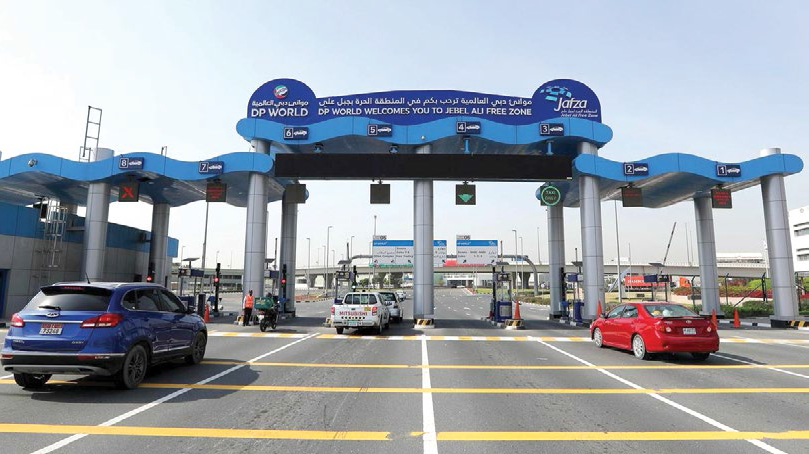UAE is home to 45 free zones across the country, notably the highest globally, with ten more under construction. Defining a large part of the country’s private sector growth, these zones attract marketing, trade, and investment opportunities that accelerate the growth and success of the country’s finance, IT, logistics, trading, and media industries.
As of February 2021, more than 60,600 companies are registered in the country’s free zones, invariably accounting for eight percent of the total number of companies registered in the UAE. The government’s targeted efforts have helped the country achieve the position to become the most favorable business destination globally in recent years. Incentives for start-ups, entrepreneurs, and freelancers include reduced registration fees, visa extensions, and capital finance.
The free zones include prominent pillars of the private sectors related to trade, industry, energy and renewable energy, media and communications, metals and commodities, finance, healthcare, and IT.
JAFZA and DMCC – The Path Breakers
Dubai is now home to 30 free zones, including giants like JAFZA and Dubai Multi Commodities Centre (DMCC). UAE’s first free zone -the Jebel Ali Free Zone Authority (JAFZA) caters to over 7500 companies and accounts for 28 percent of Dubai’s GDP. Another feather in its cap is that JAFZA is the largest free zone in the world. That which started as a central pillar of economic diversification, JAFZA is today the blueprint for establishing several other free zones across the GCC. The DMCC is the largest and fastest-growing free zone in the UAE, which marks the country’s appeal for its budding multicultural international entrepreneurs.
Dubai is right now identified as a de facto-free zone hub.
Benefits of Being Under The Free Zone Umbrella
So what exactly is the lure of being under the free zone?
Largely defined by flexible policies surrounding foreign ownership, labor regulations, taxes, etc., the other benefits are:
- Foreign entities under the free zone enjoy 100 percent ownership circumventing foreign ownership policies with ease.
- Attraction of global talent to UAE as there are no adverse regulations to foreign labor.
- Apart from being exempt from taxes and fees like custom duties, the companies are allowed 100 percent capital and profit repatriation.
In short, the free zones bring over job opportunities, competitive salaries, a solid knowledge base, and an overall level of excellence.
Ancillary Services
Free Zone authorities extend ancillary services for legal, medical, labor, and immigration. The free zones also provide freelance permits to international branch office licenses from shared desk space on annual contracts to industrial warehouse leasing for 25 years. Simply put, everything is designed to attract and help investors build a business, grow trade and investment and facilitate the transfer of skills, knowledge, and technology.
Success in Times of the Pandemic
While industries worldwide were fighting to survive the pandemic, the free zones in the UAE stepped up their efforts to strengthen the business climate by launching several initiatives. This helped the government pick up the broken pieces of the economy in the form of health crisis and dip in oil prices. This was achieved largely due to the economic policy tools that was in place by the UAE government. For example, the Umm Al Quwain Free Trade Zone started the business LYTE packages that help prospective investors continue with their business set up plans with a neat 50 percent off. Also, acquiring licenses was done in just days compared to the earlier timeframe of ‘months’. Some free zones in the UAE introduced online services for investors, while others recorded an increased number of new registrations and business expansions, with technologyfocused sectors seeing higher traction.
Foreign Policy Objectives
As part of the agreement between UAE and Israel to normalize friendly relations, many of the newly formalized commercial links came to fruition among Gulf Free Zones. Dubai uses its flagship commercial entities to cement ties with its Israeli counterparts. In September, DP World formerly known as Dubai Ports Authority, and several government entities signed agreements with Israel-based Dover Tower Group to assess port and free zone development opportunities in Israel and establish a direct shipping route between Eilat port and the UAE port of Jebel Ali.
Encouragement for Developing Clusters
Free zones will continue to encourage the development of clusters, enhancing the UAE as a hub that encourages broader build-out of specialized infrastructure and develops sectors that are key to the economy while also facilitating job creation. Noting that free zones have become an integral part of the diversification plans of each Emirate, there is likely to be divergence in the development trajectories of such business hubs. The Israel Diamond Exchange and the Dubai Diamond Exchange, which is part of DMCC, agreed to enhance cooperation in the diamond trade.
Free zones are more likely to support the development of technology-based strategic industries and offer global investors attractive growth propositions. As the country continues to build on strategic focus industries, flexibility and multipurpose utility will be the key traits of successful free zones in the UAE.